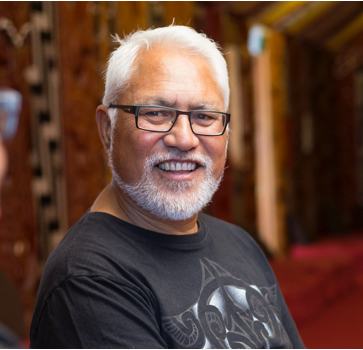Takutai moana: Customary rights in the marine and coastal area (foreshore and seabed)
Overview
Te Takutai Moana Act 2011 has provided ways for Māori to get legal recognition of their customary rights in te takutai moana (the marine and coastal area), either through an agreement with the government or by a High Court order. However, to do this you had to give notice to the government or apply to the High Court no later than 3 April 2017. Notes: A separate act made different arrangements for Ngāti Porou.
The full title of Te Takutai Moana Act is the “Marine and Coastal Area (Takutai Moana) Act 2011”.
Note: This section gives just a broad summary of what the Act does and how Māori have been able to gain recognition of their customary rights under it. You can also get information about Te Takutai Moana Act at tearawhiti.govt.nz
Exactly what area are we talking about here?
Te Takutai Moana Act 2011, s 9(1)
Te takutai moana (the marine and coastal area) is the area starting from the mean (average) high-tide mark, and ending 12 nautical miles out to sea. In other words, it includes the wet part of the beach, and the seabed up to 12 nautical miles out. It also includes the beds of rivers, going upstream from the river mouth for a distance that is five times the width of the river mouth, but not more than 1 kilometre upstream.
Te takutai moana doesn’t include the seawater and river water itself (sometimes called “the water column”).
Te takutai moana is called the “marine and coastal area” in Te Takutai Moana Act. This has a very similar meaning to the “foreshore and seabed,” the term used in the Foreshore and Seabed Act.
About Te Takutai Moana Act and its background
Attorney-General v Ngāti Apa [2003] 3 NZLR 643 (Court of Appeal) Te Takutai Moana Act 2011, ss 6, 9(1), 11 Te Takutai Moana Act 2011, s 12
In 2003, the Court of Appeal ruled that Māori might be able to show customary ownership of areas of te takutai moana and that the Māori Land Court had the power to consider this question and then recognise that ownership. The government responded with the Foreshore and Seabed Act 2004 which gave the government (“the Crown”) legal ownership of the foreshore and seabed. It also extinguished (cancelled) any customary rights that Māori might have, including the ability to have ownership claims to the foreshore and seabed investigated.
After widespread protest from Māori, and criticism from the Waitangi Tribunal and the Human Rights Commission, the Foreshore and Seabed Act was replaced with Te Takutai Moana Act 2011. The new Act restored the possibility of customary title in the marine and coastal area, and gave Māori some scope to gain recognition of their customary interests if they took their claim to the government or the courts by April 2017 (see:“Pathways for recognition of customary rights in te takutai moana”).
Te Takutai Moana Act deals with an area it calls the “common marine and coastal area”. This is the marine and coastal area except for:
- existing Māori freehold land
- other areas privately owned by New Zealanders
- conservation areas, national parks and public reserves.
The Act abolished (cancelled) the ownership rights of government (both central and local) in this common marine and coastal area. It instead gave the area a “special” legal status, so that in general it’s incapable of being owned by anyone.
Many Māori are still unhappy with the new Act, and believe that the real effect of the Act is little different from the earlier Foreshore and Seabed Act.
Note: The areas that Te Takutai Moana Act applies to are those parts of the coastal and marine area that aren’t currently owned by anyone (they’re called the “common coastal and marine area”). In general, the Act says that there can’t be any new owners for those currently unowned areas. However, the government can still take parts of the common coastal and marine area and make them conservation areas, national parks or public reserves. Those areas would then be Crown land.

